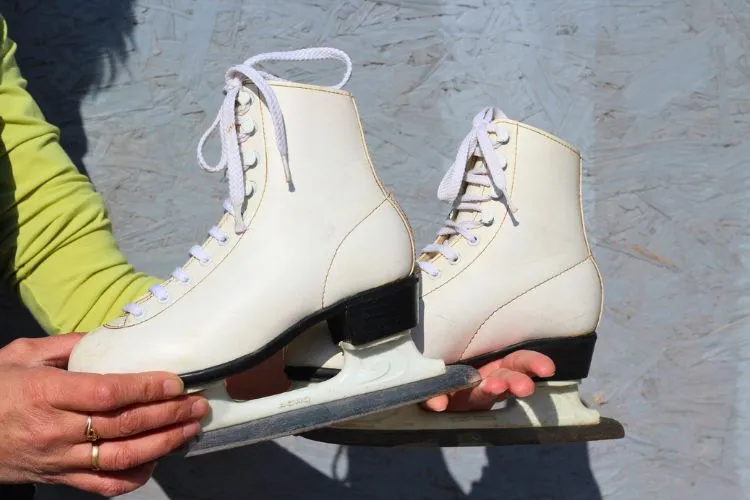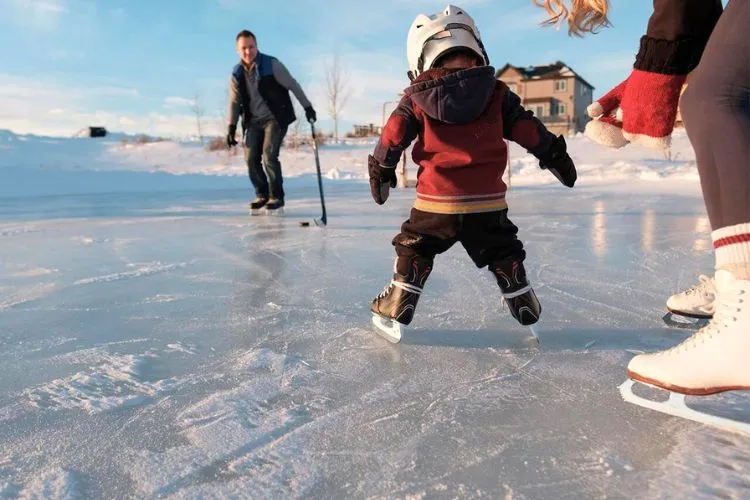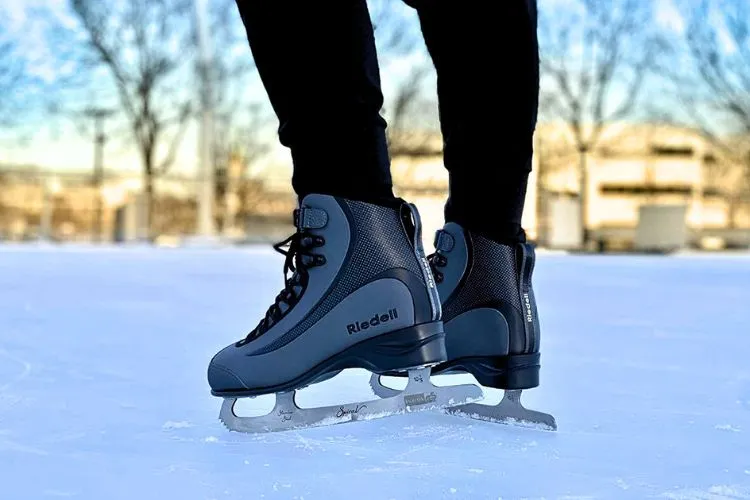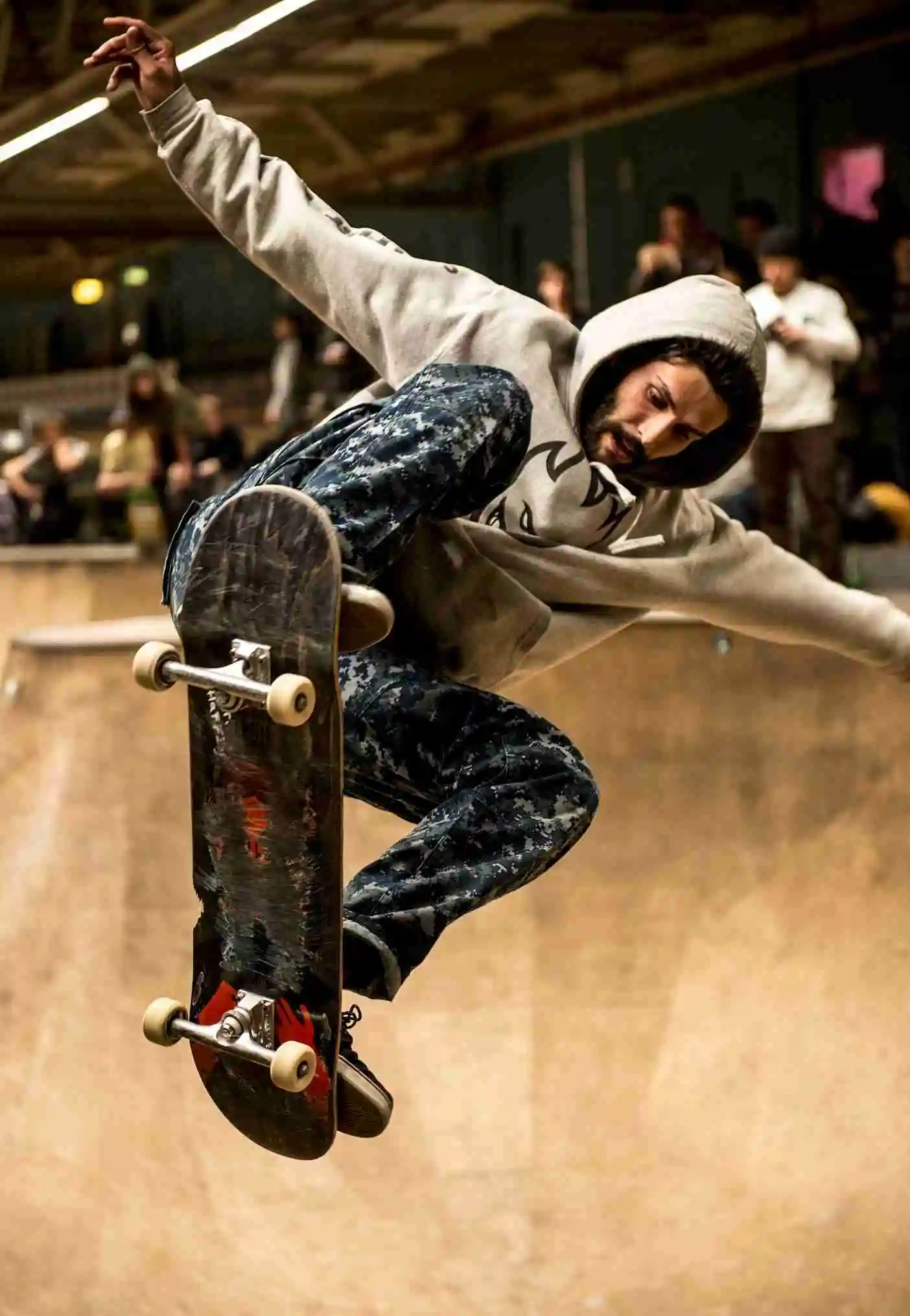For those new to the world of skating, a common question arises: is ice skating easier than roller skating? While both are thrilling activities, the learning curve for each can vary depending on a variety of factors, including balance, technique, and the type of surface.
Those new to the world of skating often find themselves pondering whether ice skating or roller skating offers a gentler learning curve.
Skating, in its various forms, has been a beloved activity for centuries, yet the question remains, is ice skating easier than roller skating? This article aims to compare both sports, helping newcomers decide which they might try first.

Is Ice Skating Easier Than Roller Skating?
Ice skating involves sliding over a frozen surface on blades attached directly to the boots. Roller skating, by contrast, uses wheels fixed to the shoes, suitable for a variety of surfaces. While the premise of gliding on a surface stays the same, the skills and techniques used in each sport vary greatly.
The Physics of Skating
The success of skating hinges on friction and the surface. Ice presents a low-friction environment, often leading to a feeling of sliding out of control for novices.
Roller skating has higher friction due to the wheels’ contact with the ground, providing more grip and stability, which might make it seem less daunting for beginners.
Equipment and Gear

Ice Skates
Ice skate blades demand precise balance due to the smaller surface area in contact with the ice. This requires a period of adjustment, where learners get used to the blade’s thin edge. The boot support in ice skates is critical as it ensures the ankle remains steady.
Roller Skates
Roller skates come in a wide range, from speed skates with larger wheels to the quad skates commonly seen in rinks. The varying wheel arrangements can affect stability and ease of motion.
Bearings play a vital role; better bearings equal a smoother ride, which can improve the learning experience.
You may also find useful: Inline Skates vs Quad Skates: Choosing the Best Ride for You
Learning Curve and Difficulty Level
Beginners face initial struggles in both sports such as learning to balance and push off correctly. The challenge may seem greater in ice skating because falls can be harder, and the slick surface is less forgiving. Roller skates may provide more stability upfront, allowing for potentially quicker progress in the early stages.
Safety Considerations
Both sports come with risks. Ice skaters contend with the hard ice surface which can lead to more severe injuries from falls. Roller skaters must navigate potential cracks, rocks, and uneven terrain. Protective gear, such as helmets and pads, is a must in both sports to minimize injury risks.
Venue Accessibility and Seasonality
Access to ice rinks can be limited by location and season. Roller skating is often more accessible since it can take place on various surfaces and is not restricted by weather or season. However, indoor roller rinks also provide year-round opportunities.
Community and Social Aspects
Both ice and roller skating have vibrant social scenes. Ice skating, with its seasonal nature, often becomes a festive activity. Roller skating tends to offer a more consistent community presence, with rinks often hosting social nights.
Cross-Training Benefits
Skills from roller skating can be transferred to ice skating and vice versa, especially where balance and muscle strength are concerned. Athletes from both disciplines often find they can switch between the two with some adjustments.
Pro Tips for Beginners
Choosing the right skates is crucial. For ice skating, aim for a snug fit with strong ankle support. Roller skates should feel comfortable and match the intended skating environment. Practice falling safely and build confidence gradually. Approach both sports with patience and persistence.
Technique and Skill Development
Every sport has its unique set of techniques and ice skating and roller skating are no exceptions. In ice skating, mastering the art of gliding on a thin blade requires learners to focus on balance and control, utilizing the inside and outside edges of the blade for turns and stops.

Roller skating, on the other hand, demands adeptness in maneuvering on four wheels (or inline), where balance is distributed differently, and techniques for propulsion and braking vary noticeably.
Beginners in both disciplines start with learning to balance on their new set of wheels or blades. As they progress, they work on forward movement, simple turns, and safe stopping methods.
Over time, practice leads to improved stability, enabling the skater to attempt more complex maneuvers such as crossovers, spins, or jumps.
Dedicated practice, often with guidance from more experienced skaters or through lessons, is crucial in developing these skills. Both sports offer the satisfaction of mastering new techniques, contributing significantly to the skater’s confidence and enjoyment.
Equipment Maintenance and Upkeep
Maintaining your skates and safety gear is crucial to ensure safety, longevity, and optimal performance. For both ice and roller skates, you should regularly wipe down your boots and blades or wheels to remove dirt and moisture.

This prevents rust and material degradation. Sharpening the blades of ice skates is also necessary to maintain proper edges for cutting into the ice, usually suggested after every 20-30 hours of skating.
Roller skate wheels and bearings require special attention; rotating wheels ensure even wear, and bearings should be kept clean and lubricated for a smooth roll. Remember to check the tightness of the trucks for desired maneuverability.
Safety gear, such as helmets, pads, and wrist guards, should be inspected for cracks or excessive wear before each use. Replacing them as needed can make the difference in preventing injuries. Good maintenance habits extend the life of your gear and contribute to a safer and more enjoyable skating experience.
Frequently Asked Questions (FAQs)
Is ice skating more expensive than roller skating?
The costs can vary widely depending on access to venues and equipment. Roller skating can initially be less expensive, as it doesn’t require rink fees.
Can I teach myself to ice skate or roller skate?
Yes, many people teach themselves, but lessons can provide valuable guidance and help prevent bad habits.
Which is better for fitness: ice skating or roller skating?
Both provide excellent cardiovascular workouts and can improve balance and muscle strength. The choice depends on individual preference.
Are roller skating skills transferable to ice skating and vice versa?
There is a degree of transfer, particularly regarding balance and leg strength, but each also requires specific techniques.
What is the best age to start learning each sport?
People of all ages can begin either sport. Starting young can be easier, but adults gain enjoyment and health benefits from skating, too.
Conclusion
In comparing which is easier, ice skating or roller skating, there is no clear winner. Both have unique challenges and charms. Trying both sports can give individuals a sense of which they prefer according to their skills, access to venues, and personal comfort with the equipment.

Matthew James is a passionate skater who wanted to create a platform to share his love for skating with others. With a vision to create a vibrant community of skaters, he aims to provide a space where skaters of all levels can connect, learn, and grow together.
